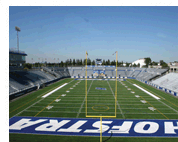Reputation Remains When Playing Days Are Over
It was the spring of 1993 when Cal Ripken Jr. was introduced to a skinny 17-year-old kid. The teen would become the overall top pick in that summer’s draft and he had asked to meet with his boyhood idol. They had a brief and cordial meeting. They stayed in touch through the years.
Much has happened since.
Ripken continued to redefine the position of shortstop, proving that big guys could handle it defensively and also hit home runs. He became a celebrated baseball icon and a first ballot Hall of Famer. His dedication to preparation and a vigilant work ethic still are referenced more than 10 years after he retired.
Ripken took pride in representing the Orioles. He stressed that the focus always should be on his team. The many programs and charities that he supported as a young player remain important to the Ripken family legacy.
As predicted, that teenager who idolized Ripken did make it to the big leagues. He became a tremendous player with natural talent, but he also became alienated from many fans and fellow players.
Plenty of scouts said that he was the best young player they ever saw. But, maybe the budding star thought otherwise. Maybe he lacked confidence. Or, maybe he wanted to be greater than great, the greatest of all time, and he thought the only way to accomplish this was to use performance-enhancing drugs.
Alex Rodriguez had the right idea when he idolized Cal Ripken, but his train derailed badly along the way. Rather than following Ripken on the right track to success, A-Rod attempted to cheat the game for his personal gain. He also hurt future players, sending a message to athletes with considerably less natural talent in the minor leagues, on college and high school teams, and playing for fun in little league somewhere that they could grab an advantage by cheating.
A-Rod may still be a productive player when he returns, if he returns, for the 2015 season. He also will collect more money than just about any other ballplayer ever will see. But there is nothing he can do that will repair the self-inflicted damage to his reputation. Maybe he doesn’t care now, but in sports as in business reputation stays with you and your family long after your playing days are over.
Jim









